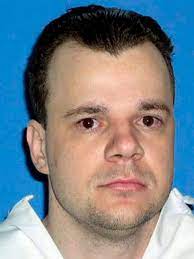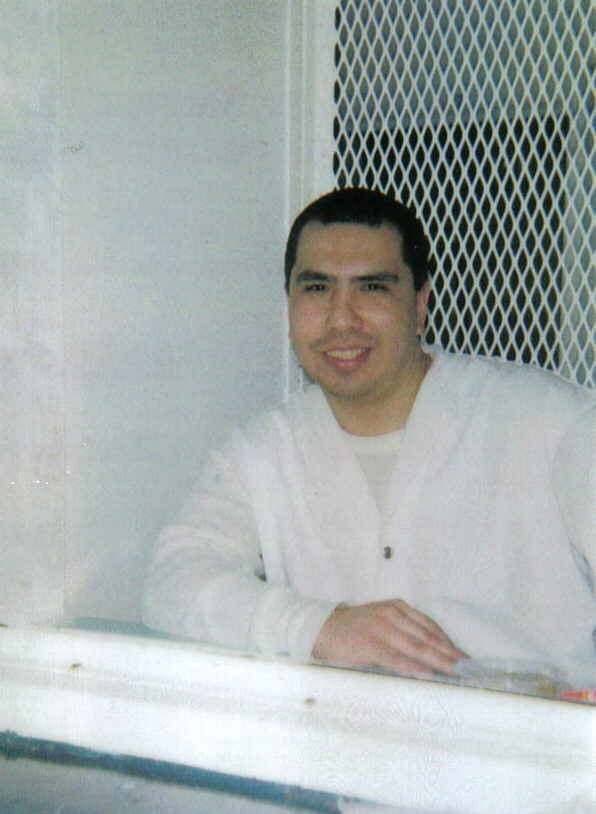08/04/2016
By Kenneth Foster, former Texas death row inmate, Certified Paralegal and a member of the National Lawyer’s Guild.
The battle against the Law of Parties in Texas continues. This archaic law plagues the criminal justice system with controversial capital murder convictions that result in death sentences for people who never killed anyone.
In summary, the law states that a person is criminally responsible as a party to an offense if he helped plan, knew of, or did not try to prevent the offense. Further, it states that even if a more egregious crime occurs in the carrying out of the original offense the non-principal (accomplice), who may never have even entered the crime scene area, is held criminally responsible for any and every offense committed by the principal offender.
This law has been under extreme scrutiny since my 2007 commutation. I was convicted as a getaway driver in 1997, yet I was over 70 ft. away from the crime in a car with the windows rolled up and the air conditioning on. A passenger in my car, Mauriceo Brown, stepped out of my vehicle and, according to prosecutors, attempted to rob a man,Michael La Hood, whom he wound up shooting and killing. Maurice jumped back in my car and I drove away.
Four people were in my car that night. Only Mauriceo and I were prosecuted and, against our objections, were forced to go to trial together. Brown testified that there was no plan to rob anyone — a statement not refuted by the state’s star witness, Julius Steen, who had been sitting in the front seat with me. But, the prosecutors convinced the jury it was a robbery anyway.
As an alleged accomplice, I was convicted alongside Mauriceo, and in May 2007, I received my execution date. Supporters worldwide rallied to my defense. The Board of Pardons and Parole voted 6-1 in favor of commutation. On August 30, 2016, Gov. Perry commuted my sentence. His stated his reason was that he was concerned about a Texas law that allows capital murder defendants to be tried simultaneously. He stopped short of acknowledging that there was no evidence that I agreed to commit even a robbery let alone a murder. If the jury had not convicted us of robbery at my trial, I would not be considered a party and therefore ineligible for the death penalty. I remain in prison, fighting my capital life sentence.
Many legislators are not aware of the Law of Parties works. But most who are familiar with it seem to be against any reform. In 2009, it appeared I might expect some legal relief when legislative Bill
HB 2267, The Kenneth Foster Bill, was introduced. It prevented non-killers from execution and forbade joint trials in capital cases. Gov. Perry objected to omitting the death penalty for Law of Party defendants and promised to veto the bill if passed. Unfortunately, state representatives who sponsored the bill did not listen and the Lt. Governor,David Dewhurst, never called the bill, presumably at the request of Gov. Perry. It died in the Senate, thus ending the chance of passing a severance law which would have been beneficial to my case.
According to the Death Penalty Information Center, under the “Law of Parties,” there have been a least seven executions of “accomplices” (those who had little to no knowledge of the depth and breadth of a crime that was to be committed by the principal), since the death penalty was reinstated in 1976. This, is exclusive of murder-for-hire cases. Though the “Law of Parties” is derived from English Common Law, England abolished it 51 years ago. 24 of the 36 American death penalty states implement it.
This brings me to the current outcry over the case of Jeff Wood. He is scheduled to be executed on August 24. His crime was being an accomplice to a robbery. In his case, while Jeff waited outside in the car, the principal conspirator took the plan into his own hands and shot and killed the store clerk. According to Texas Penal Code 7.02b: “If, in the attempt to carry out a conspiracy to commit a felony (robbery), another felony (murder) is committed by one of the conspirators, all conspirators are guilty of the felony actually committed though having no intent to commit it, if the offense was committed in the furtherance of unlawful purpose and was one that should have been anticipated as a result of the carrying out of the “conspiracy.” Therefore, by the Law of Parties, though Jeff Wood did not have the gun, nor any influence over the person pulling the trigger and committing the murder, he is treated as though he planned the murder and pulled the trigger himself. Even if the law provides he be tried for the crime as if he were the principal, how could it provide a punishment (the death penalty) for someone who had no influence in the murder and is to be used in the most extreme of cases?
The Law of Parties bill also states in 7.02 (a) that one may receive a death sentence if: “acting with intent to promote or assist the commission of the offense, he solicits, encourages, directs, aids or attempts to aid the other person to commit the offense.” How can there be a fair and constitutional judgment regarding a standard of guilt under a single statute, when it has different criteria that are antithetical?
It’s hard to understand the opposition to reforming the Law of Parties as it is currently written as it has some severe flaws that allow people to be put to death that neither committed murder nor intended that murder would ever be carried out. University of Texas professor Jordon Steiker says the law’s application “flies in the face of a broader effort to reserve the death penalty for extreme cases.” A fair and equitable law should include careful consideration as to the extent in which an accomplice in one crime is held accountable for the actions of the principal(s) who carry out further crimes.
Because lives are literally at stake, the law should be rewritten so that prosecutors must prove a party had the intention to murder before a death sentence is applied. The language “should have been anticipated” is so ambiguous it needs to be removed. Without reform, broad criteria such as this ensnares people like Jeff Wood who is now forced to face theT exas death machine even though he never killed.
You can show your support against the Law of Parties by speaking out for Jeff Wood. Here are four ways you can help:
· Sign his petition: https://www.change.org/p/governor-abbott-and-the-texas-board-of-pardons-and-parole-demand-justice-for-jeff-wood-5807b015-014a-4a21-8c6e-e34be865c27c
· Write a clemency letter –
http://nodeathpenalty.org/sites/default/files/fact_sheet/JeffClemencyLetter2.pdf Mail to both the Governor of Texas and the Board of Pardons and Paroles. A sample clemency letter, with addresses for both, can be found here: *Please also send a copy of your letter to the Save Jeff Wood Campaign at 246 County Road 7611, Devine, Texas, 78016
· Donate to his campaign – https://www.generosity.com/emergencies-fundraising/campaign-to-save-jeff-wood-from-texas-execution
· Write Your Legislators
Demand that the Law of Parties be reformed. 7.02 (b). Copy the Texas Board of Pardons and Parole and politicians: Boris Miles, Harold Dutton and Chuey Hinojsa, who are supportive of the Law of Parties reform.





